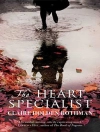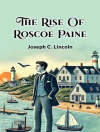Set against the rugged landscape of 17th-century Devonshire, R. D. Blackmore’s ‘Lorna Doone’ intricately weaves a story of forbidden love, social class struggles, and adventure. The novel is distinguished by its rich, descriptive prose that immerses the reader in the beauty and isolation of the moors, while employing a narrative style that blends romanticism with elements of historical fiction. Blackmore’s skillful use of dialect adds authenticity to the characters’ voices and enhances the immersive experience of the West Country setting, where danger looms and love defies societal expectations. R. D. Blackmore, born in 1825 in a small village near the Exe River in Devon, draws heavily from his own upbringing in the rural English countryside. His deep familiarity with the region’s landscape and lore informs his portrayal of the Doone family, an outlaw clan at the center of this poignant tale. Influenced by the Romantic poets and his own experiences, Blackmore infuses ‘Lorna Doone’ with a sense of adventure while exploring the tumultuous dynamics of love and honor. This timeless novel captivates readers with its passionate narrative and compelling themes. Highly recommended for those who enjoy richly drawn characters and vivid settings, ‘Lorna Doone’ is not just a historical romance; it is an exploration of the human spirit’s resilience in the face of adversity, making it a must-read for anyone interested in classic literature.
Over de auteur
Richard Doddridge Blackmore (1825–1900), commonly known as R.D. Blackmore, was a pre-eminent English novelist of the Victorian era, renowned for his vivid characterization and the portrayal of English rural life. His literary career blossomed with the publication of ‘Lorna Doone’ in 1869, a romance set against the backdrop of Exmoor during the late 17th century. This novel, which stands as Blackmore’s magnum opus, has been celebrated for its blend of historical drama, adventure, and the depiction of passionate love. Blackmore’s narrative style in ‘Lorna Doone’ is marked by a robust and evocative prose that captures the tumultuous and pastoral elements of the period. His work is often characterized by his deep affinity for the natural world, a reflection of his personal interest in horticulture and farming. While ‘Lorna Doone’ remains his most famous work, Blackmore authored several other novels. However, despite his prolific writing career, none of his other works reached the same critical and commercial success. Blackmore’s contribution to literature extends beyond the stories he crafted; his influence on the development of the English regional novel is notable. His portrayal of rustic life and landscapes has contributed to the cultural memory of the English countryside in literature. Blackmore’s ‘Lorna Doone’ continues to be studied and enjoyed, underscoring his legacy as a pillar of 19th-century English literature.












